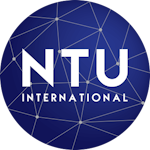NTU’s Involvement in Gender Equality and Social Rights
At NTU, we believe that Gender Equality & Social Rights issues need to be addressed with a human-rights-based approach directed at enhancing inclusivity, gender equality, and promoting non-discrimination policies and actions to ensure sustainable social development. Social protection systems have the potential to transform social and economic dynamics by addressing the various risks and vulnerabilities linked to socio-economic factors as stated in the European Pillar of Social Rights Action Plan. These factors affect social groups differently based on gender, race, religion, ethnicity, age, sexual orientation or disability, as well as the underlying causes of discrimination.
We are fully aware of the specific challenges related to Gender Equality and Social Rights, including issues such as poverty, limited access to quality education, persistent inequalities and discrimination, underemployment and unemployment, ageing populations, lack of awareness about family planning, inadequate child protection systems, and the widespread gender-based violence.
Due to the inherent complexity of gender equality and social rights issues, we strive to develop policies and regulations in a comprehensive manner. To achieve this, we work with a variety of public and private stakeholders on international and domestic levels: EU Delegations, UN agencies (UNHCR, UNICEF, IOM, UNDP etc.), the Organisation for Economic Co-operation and Development (OECD), international development institutions (DANIDA, GIZ, AFD, AECID, etc.), national governments according to their domestic administrative framework (Ministries of Social Development, Ministries of Labour, Ministries of Health, Ministry of Education, Ministry of Local Administration, Ministry of Finance, National Council for Family Affairs etc.), Social Security Corporations, Vocational Training Corporations, National Centres of Human Rights, CSOs, NGOs and Academia.
The sector is highly vulnerable to external shocks such as global financial crises, the influx of refugees, pandemics like COVID-19, conflicts such as the Russia-Ukraine conflict, etc. Meanwhile, structural challenges have a constant impact, namely: poverty, rising living costs, and vulnerability of specific groups (children, youth, women and girls, the elderly, and people with disabilities). Cross-cutting challenges in the sector are shaped by domestic legal and regulatory frameworks. Some countries face challenges such as discriminatory policies; gaps and inefficiencies in domestic social security systems; and the uncertain legal status of migrants. In this regard, NTU promotes best practices and considers lessons learnt by international development actors; seeks to enhance partnership and establish sound communication channels between stakeholders in the field; develops and implements tools for public awareness raising; enhances capacities of both public and private stakeholders; conduct and support studies and research for establishing conditions for evidence-based decision making by competent authorities and informed decision-making by the private sector; improves legal and regulatory framework by incorporating aforementioned best practices.
NTU’s multicultural, gender-balanced team is the guarantee of high-quality Gender Equality & Social Rights services we provide on a daily basis. Our extensive experience in policy and programming studies on social matters enables us to professionally implement regulatory, institutional, Capacity Building, and Technical Support programs, conducting evaluations and providing concrete recommendations.

